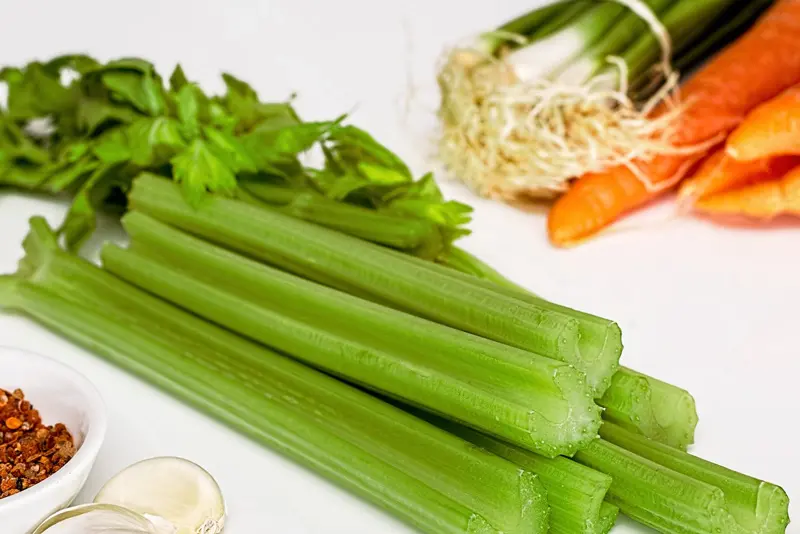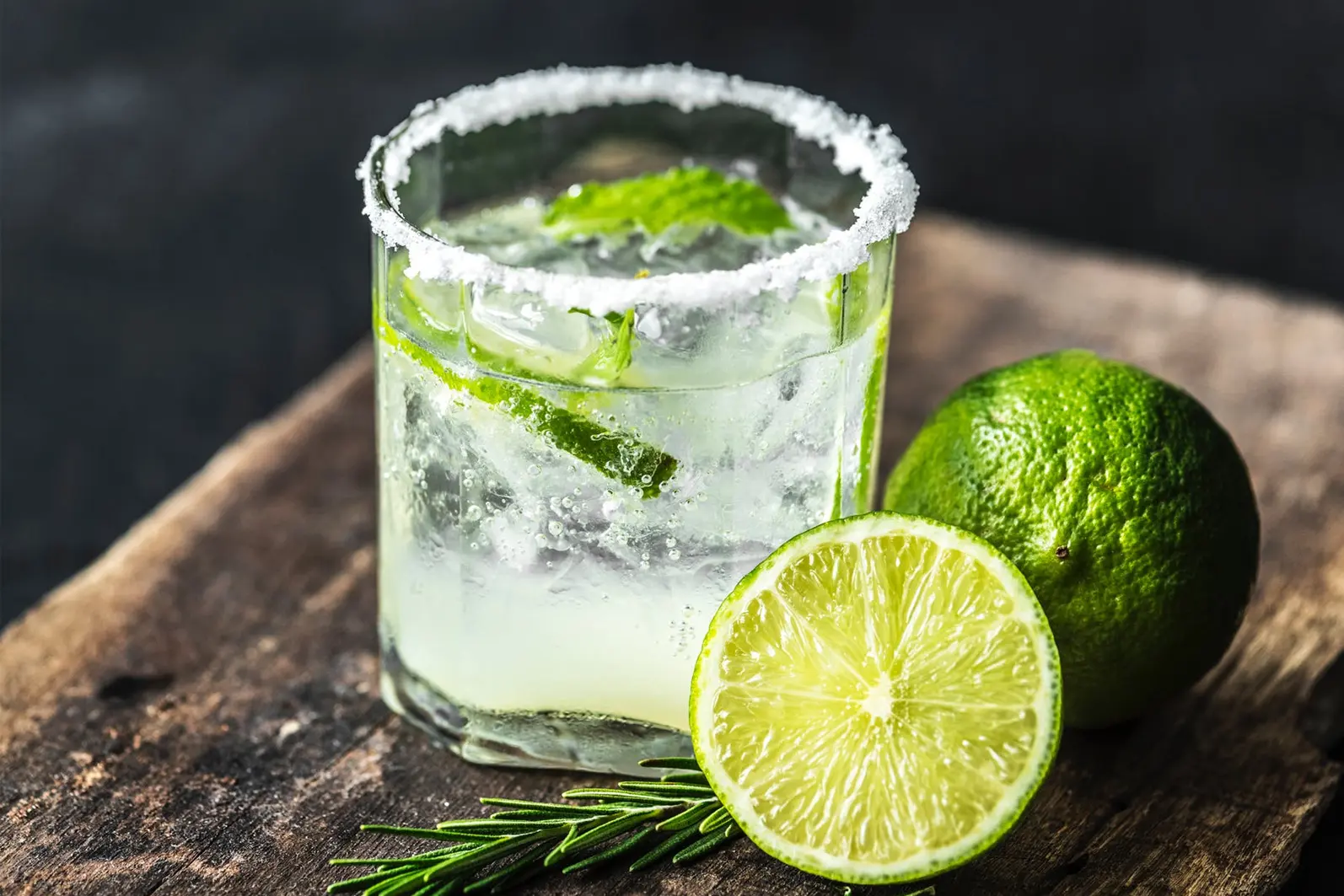If you’re wondering what the heck a negative calorie food is… well, you’re not alone.
You see, a “negative calorie food” supposedly uses more energy to chew, process, and digest than what it provides in calorically. Foods like vegetables, fruits, and even cold water (Low to no-calorie options) have been thought to cause this caloric deficit.
When we eat a certain food, the thermic effect does increase the metabolism but is the caloric expenditure enough to offset the caloric intake? Research says no… (1, 2)
“Negative Calorie Foods”
Celery, cucumbers, and lettuce are composed of 95% water and they contain very low calories (Less than 15). (3)

Celery has 14 calories per cup, cucumbers have 8, and lettuce contains 5. So, having such few calories would lead someone to believe these are negative calorie options.
And foods like these with higher amounts of water are often marketed to be “negative calorie foods” as a result.
Level Up Your Fitness: Join our 💪 strong community in Fitness Volt Newsletter. Get daily inspiration, expert-backed workouts, nutrition tips, the latest in strength sports, and the support you need to reach your goals. Subscribe for free!
But, studies have shown high fiber foods to have less of an effect on diet-induced thermogenesis. So, since celery is essentially water and fiber, the energy-burning effect is decreased. (4)
How Many Calories Are Burned Through Chewing and Digestion?
According to Mayo Clinic, about 5 to 10 percent of your energy goes toward eating and digesting food. (2, 3)
Fat consumption is on the lower end and protein is on the higher end for the energy required for digestion. So this number also varies slightly.
But, is it enough to claim that negative calorie foods will burn more calories than what they contain? How could we eat foods and end up with a negative balance of energy?
Here’s a hint: The foods we eat will always contain more calories than what is required to process them since it’s never completely lost. (5)
But, What About Cold Water’s Supposed Thermogenic Effects?
There’s no denying that drinking cold water has a thermogenic effect, but it’s still not significant enough to cause a net loss of energy. (6)

A study showed room temperature water to have no thermic effect, and cold water had a small effect but not significant to even be relevant for weight loss because calorie burned were insignificant. (7)
So, cold water is out of the equation too.
So, Do Negative Calorie Foods Exist?
Research shows that the energy required for chewing, digestion, urine, and feces excretion does not outweigh the energy retained. (8)
But what’s even more reassuring of this notion is that there are no studies to support the efficacy of negative calorie foods.
In fact, Donald Hensrud, M.D. from Mayo Clinic research explained…
“Foods that contain few calories, such as celery and other nonstarchy vegetables, provide a small number of calories but still require energy to digest. That means it is theoretically possible to have a negative-calorie food, but there are no reputable scientific studies to prove that certain foods have this effect”. (3)
And this leaves us with an answer to the big question of… do negative calorie foods work for a net loss?… well, we as well as research and science have come to the conclusion that there is no such thing as negative calorie foods.
The body is not meant to be in an energy deficit after eating anything as this would go against its innate functions of survival and energy preservation…
Final Thoughts
If you’re hopeful that a negative calorie food diet will shred the pounds… well, we hate to be the bearer of bad news but it’s likely not happening…
Like seriously… if it was effective then why wouldn’t it be more popular? With all the scientific research and amazing minds around us, it would have been the best thing since sliced bread. But it’s not, and there’s no sufficient evidence either which confirms any real-world evidence.
Now, eating low-calorie foods is great for weight loss. But a single food will not cause a net loss in energy through the process of eating and digestion.
So, it’s best to not rely on this method and just structure your meal plans to support an overall caloric deficit which will yield weight loss results.
And, according to research from the Physician’s Committee for Responsible Medicine, certain foods have plenty of powerful weight loss benefits on their own. (9)










